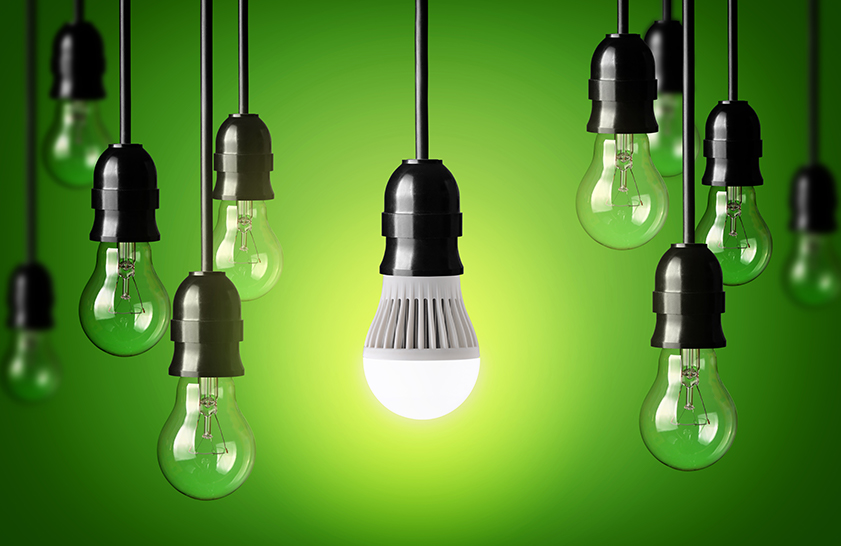Recycling LEDs becomes a pressing issue
The application of Light Emitting Diodes (LED) leads to significant energy reductions for lighting in buildings, towns or in transport. LEDs already represented 43% on the lighting market in 2015, which represents a stunning 55 million units. And this trend is expected to continue. Considering that the expected lifetime of LED is around 8 years, recycling will become a pressing issue in the coming years.
In short, LED lights are energy-efficient, long-lasting, durable and free of mercury, lead and phosphorous. Most importantly, critical raw materials used for their production are all recyclable. Consequently, their recovery and reuse as secondary resources for new products helps to conserve finite natural resources. Moreover, greenhouse gases emissions are reduced compared to extracting and manufacturing from raw materials.
However, there is no technical solution for recycling LED today.
Strengthen Circular Economy in Europe
The REDLED (Recycling End-of life-LED) project is coordinated by the University of Bordeaux and the consortium includes the BRGM, Coolrec, KU Leuven, MTB and the Wuppertal Institute.
The aim of the REDLED project is to upscale a technology to recycle LED products. This creates a new supply for secondary resources and will strengthen the raw materials independence of Europe. Therefore, the REDLED project is a chance for Europe to become leader in circular economy.
Bertrand Laratte, Project Coordinator, I2M ENSAM
At the same time, LED recycling provides an opportunity to reduce the costs and impacts of landfilling. In conclusion, even though LED lights are already environmental-friendly, they will have a less negative impact if recycled correctly.
REDLED will focus on:
- Assessment of the potential volume of LEDs reaching their end of life in the coming years until 2030. Projection of the amount of critical raw materials contained in the volume of discarded LEDs.
- Characterisation and evaluation of the recovered materials
- Material Flow Analysis
- Life cycle analysis to assess the environmental and economic impact of the developed recycling technology
- Adapting a commercialised shredding line to build a line able to decontaminate, grind and sort all kinds of LED flows.





